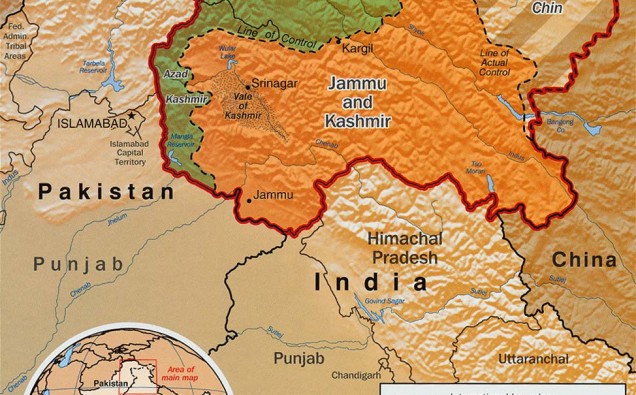
The latest bout of words between interior ministers of Pakistan and India at the SAARC Internal Affairs Ministers’ moot in Islamabad have further stoked tensions between the two nuclear armed South Asian rivals.
In the backdrop of last month’s escalation in Kashmir, political analysts on both sides of the border were not pinning much hopes for a thaw in Pakistan-India relations. But few had anticipated an abrupt end to the conference due to exchange of hot words regarding brute use of force against civilians in the Indian held Kashmir.
The exacerbation of South Asian tensions is another setback to hopes for stability in the region, with the Kashmir scenario raising fears of unrest, militancy and diplomatic standoff. Already, Afghanistan remains on the edge and tangled in the strategic rivalry between Pakistan and India. Washington is watching the happenings wearily as it wants to see Afghanistan stabilized and any further trouble in the region will further hurt peace efforts.
At the Islamabad SAARC conference, tempers flared when Indian Home Minister Rajnath Singh criticized Pakistani government for its strong condemnation of the killing of Kashmiri youth Burhan Wani – seen as separatist in New Delhi and a freedom fighter in Kashmir – by Indian forces and consequent brutal suppression of protesters in Srinagar and other parts of the Indian-controlled Kashmir.
Singh dubbed the Kashmiri resistance leaders as terrorists, reflecting a longtime Indian attempt to link the seven-decade old dispute with modern form of terrorism afflicting now several parts of the world.
Singh also called for a strong action against what he called terrorists or organizations and even nations which support terror.
Pakistan’s Interior Minister Chaudhry Nisar Ali Khan condemned the “use of excessive force” to suppress protests in held Kashmir, without naming the Indian government.
“Using torture against innocent children and violence against civilians qualifies as terrorism,” said the minister in a reiteration of Islamabad’s stance that India is perpetrating state terrorism in Kashmir.
He also drew attention to the need for resolution of the regional issues through dialogue.
Nisar said like the attacks in Pathankot, Kabul, Mumbai and Dhaka, Pakistan too has lost many innocent lives to terrorist attacks “The use of blame game has not benefited anyone for the past six decades.”
Unlike previous SAARC conferences, no bilateral meeting between the Indian home minister and his Pakistani counterpart took place on the sidelines.
So this moot, instead of cooling the regional temperature, inflamed the environment.
The conference could not take up agenda like narco smuggling and inadvertent crossing of borders.
After the exchange of hot words, Singh left the conference before its formal conclusion and flew to India without attending luncheon hosted by his Pakistani counterpart. His address to the Indian Parliament after his return to New Delhi, further escalated the situation – providing an excuse to hawks on both countries to exploit the acrimonious atmosphere.
According to political analysts, the unceremonious end to the conference could also throw the next SAARC Summit, scheduled for later this year, into doubt.
Islamabad and New Delhi have been unable to resume bilateral peace talks, despite meetings between Prime Minister Nawaz Sharif and his Indian counterpart Narendra Modi.
Indian prime minister’s December 25 stopover in Pakistani city of Lahore for a meeting with Prime Minister Nawaz Sharif had been a source of optimism for peace backers on both sides of border.
But the Indian policy in Kashmir has again cast shadows on prospects of peace process in South Asia. The Kashmir dispute has already taken a huge toll on the region, and caused several conflicts.
The United States wants peace and security in South Asia but is not able to mediate duet to New Delhi’s refusal for any third party role.
Analysts now believe a solution to the dispute may only be found in a new approach – one that may reduce rivalry between Pakistan and India and satisfy the people of Jammu and Kashmir – the primary party. As observed by the United Nations, it will take consistent goodwill of the international community for Pakistan and India to work out a rapprochement acceptable to all three fundamental parties.













